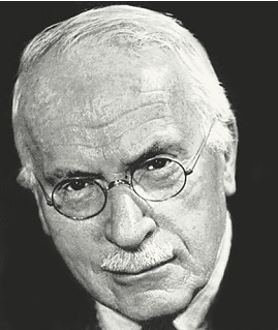Carl Jung on Non Duality — Does the Ego disappear?
By Paul Kieniewicz
 In a letter to W.Y. Evans Wentz, Carl Jung discusses his view on the existence of Super Consciousness, and in particular to the question of whether the human ego — the sense of the “I” ever disappears when a person experiences the state of Super-Consciousness. Many writers claim, when describing non-dual consciousness — that in a state of non-duality the subject and object disappear, and there remains only observation.
In a letter to W.Y. Evans Wentz, Carl Jung discusses his view on the existence of Super Consciousness, and in particular to the question of whether the human ego — the sense of the “I” ever disappears when a person experiences the state of Super-Consciousness. Many writers claim, when describing non-dual consciousness — that in a state of non-duality the subject and object disappear, and there remains only observation.
Jung remained unconvinced. He acknowledges the reality of Super-Consciousness states but says that something of the ego is left, or consciousness would not be possible. He writes,
The ego in psychology is the cognizing subject designated as “I.”
Thus Mr. Sturdy correctly quotes St. Paul’s saying: “I have seen things . . .. “
So even in his ekstasis Paul himself assures us that an “I” has seen.
Now, if his ego had been completely dissolved and abolished, he never could have said “I have seen,” he might have said “God has seen,” or rather he would not
have been able to tell us even about the fact that something had been seen at all.
So no matter how far an ekstasis goes or how far consciousness can be extended, there is still the continuity of the apperceiving ego which is essential to all forms of consciousness.
Another question he answers is about what happens to the unconscious? Can the unconscious ever become conscious? Jung cautions about popular notions that we can control our dreams. He was no doubt aware of lucid dreaming, of consciously directing one’s dreams, but remained skeptical that the content of our dreaming was under the control of the ego, though the ego had to be involved at some level.
I don’t know what Mr. Sturdy means by “being able to control one’s dreams.”
Can he produce dreams at will? For instance, can he say ” today I’m going to dream such and such a dream”?
I have never heard of such a thing.
That you can learn to remember your dreams has nothing to do with “to control one’s dreams.”
There is not one word about control of dreams in Dunne’s book.
Inasmuch as you can remember your dreams at all, it is evident that your consciousness continues at least in a dim way through sleep, otherwise you couldn’t dream and you couldn’t remember the dream.
Is Jung right? We invite comments and responses.
